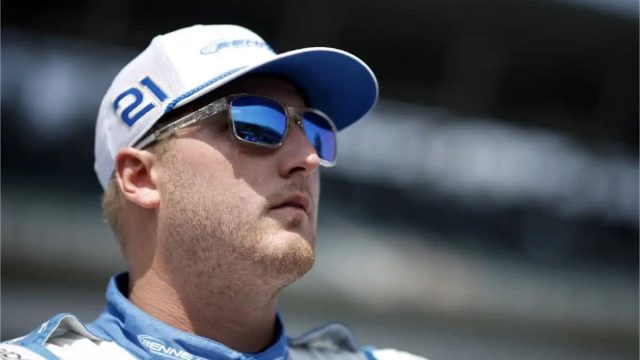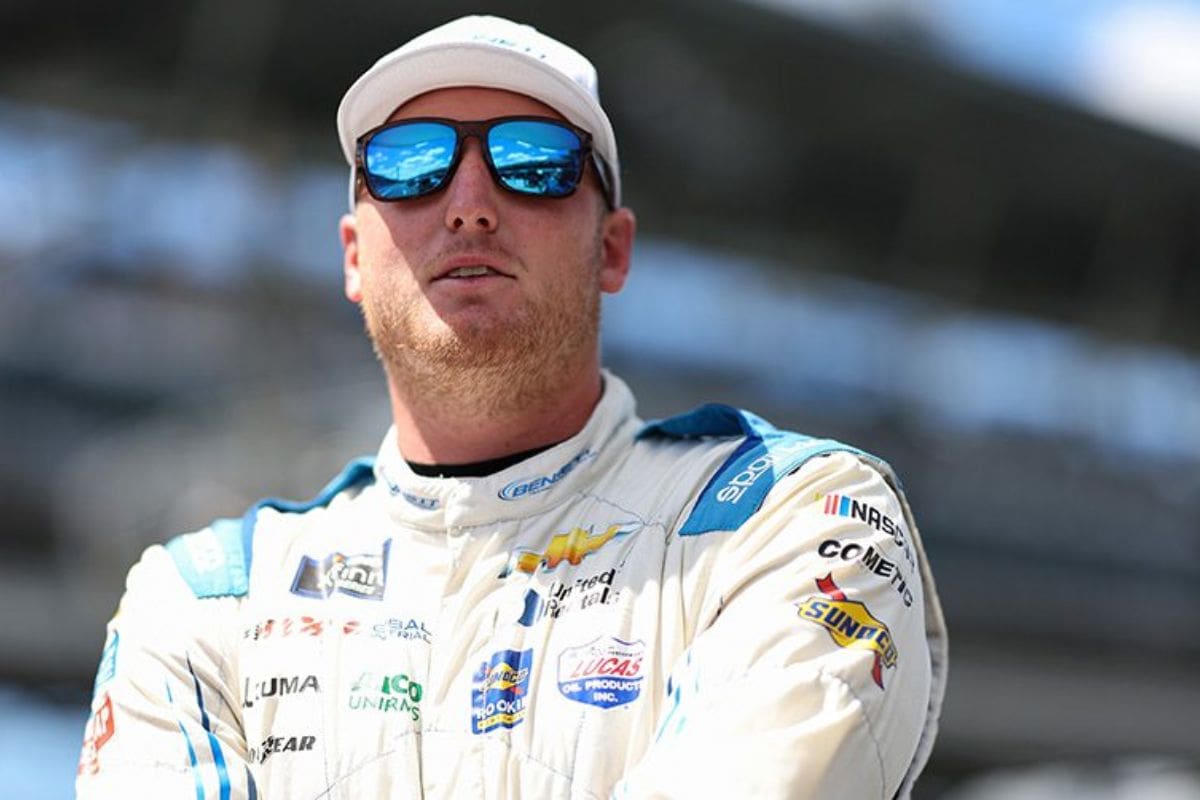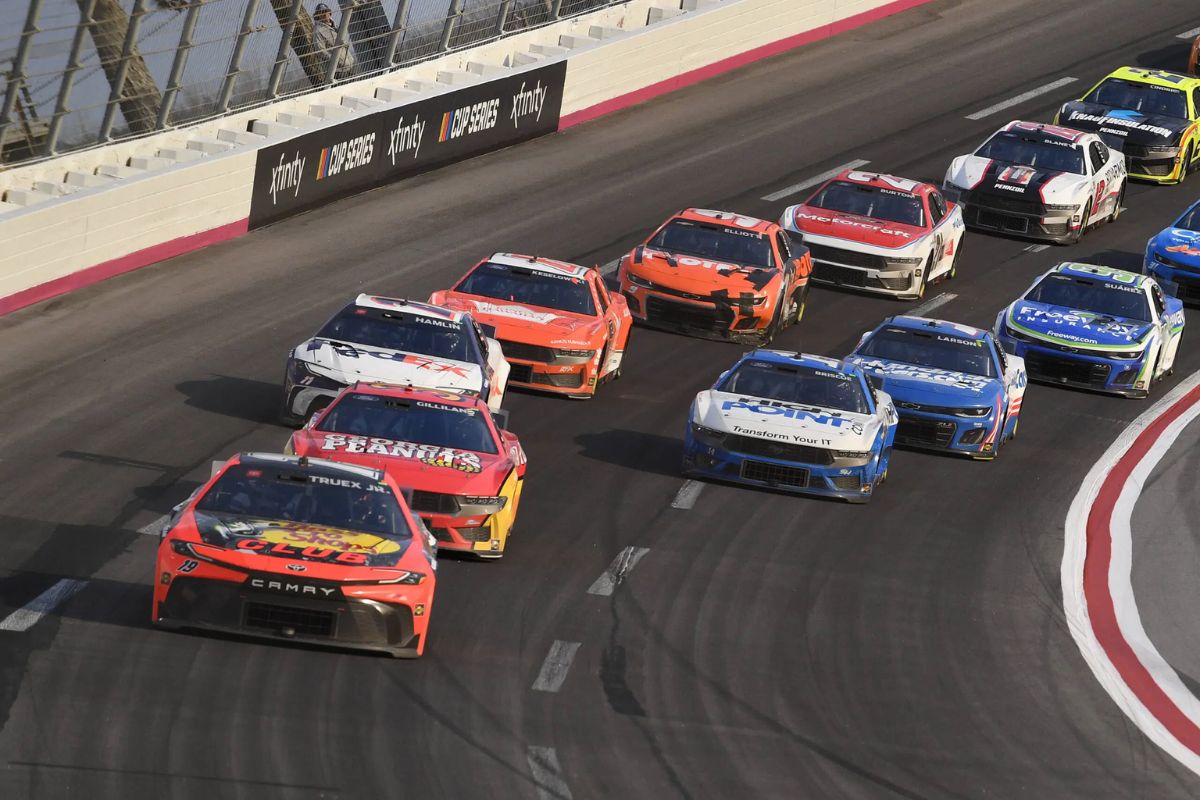Austin Hill’s Cabo Wabo 250 Blunder: Austin Hill‘s recent misstep during the Cabo Wabo 250 has drawn attention to the precarious nature of rookie competition in NASCAR and sparked a broader dialogue about accountability and performance under pressure. His aggressive maneuver, resulting in a spin after colliding with Carson Kvapil, has elicited a mixed response from fans and analysts, raising questions about his preparedness and the implications for Richard Childress Racing.
Key Highlights
- Austin Hill’s aggressive overtaking attempt at the Cabo Wabo 250 led to a significant spin, highlighting rookie challenges in NASCAR.
- The incident sparked outrage among fans, with many criticizing Hill for his perceived lack of accountability and humility.
- Social media exploded with memes and sarcastic comments, reflecting the mixed emotions surrounding Hill’s blunder and its impact on the race.
- Analysts pointed to broader cultural issues within Richard Childress Racing (RCR) that may be affecting both Hill’s performance and the team’s consistency.
- The incident serves as a pivotal learning moment for Hill, underscoring the need for improved situational awareness and accountability in future races.
Austin Hill’s Unfortunate Spin at Cabo Wabo 250
In a race where every fraction of a moment counts, Austin Hill’s unfortunate spin at the Cabo Wabo 250 stands out as a critical misstep that reflects both the pressures of rookie competition and the current struggles of Richard Childress Racing. This incident serves as a glaring reminder of the precarious balance that rookie drivers must maintain between aggression and caution, particularly in scenarios like the restart following a caution period.
Hill, piloting the #21 car, has showed a commendable season up until this point, demonstrating potential that has earned him a place in the NASCAR Xfinity Series. However, the spin at Cabo Wabo 250 exemplifies the pitfalls that can accompany a lack of experience.
Such rookie errors, often magnified under the examination of fans and analysts, can lead to a cascade of consequences—not only for the driver but also for the team’s reputation. Richard Childress Racing, currently facing its own challenges, seems to be suffering from a lack of alignment or synergy within its ranks. The inability to consistently perform at a competitive level is compounded by Hill’s miscalculation, which adds to the optics of a team struggling to break free from a cycle of adversity.
The Incident: Why Austin Hill Went Spinning Out
Caught in the heat of competition, Austin Hill’s spin during the Cabo Wabo 250 arose from a moment of overzealous ambition on the track. As the race progressed at Michigan, Hill’s desire to advance positions clouded his judgment, leading to an ill-fated attempt to overtake Justin Allgaier from the inside. In his enthusiasm, he neglected to verify whether he was clear of the car on his inside, an oversight that would prove costly.
Hill’s maneuver came to a dramatic halt when he inadvertently hooked Carson Kvapil’s front end, resulting in an uncontrollable spin. While Kvapil managed to maintain his hold on the vehicle, Hill’s #22 car spiraled off the track and into the grass, showcasing the fragile line between ambition and recklessness in racing.
.@_AustinHill gets turned and slides in front of the field! 😳 pic.twitter.com/GjlNrLsCV8
— NASCAR Xfinity (@NASCAR_Xfinity) August 17, 2024
This incident serves as a clear reminder of the importance of situational awareness and the inherent risks of aggressive driving, especially in a competitive environment where every fraction of a moment counts.
Austin Hill’s Reaction and Public Perception
Austin Hill’s reaction to the Cabo Wabo 250 incident has drawn considerable examination from fans and analysts alike, with many perceiving his refusal to accept responsibility as a reflection of deeper issues within the RCR organization. This incident, marked by a notable miscalculation, has spotlighted Hill’s handling of the situation.
His decision to deflect accountability has stirred a narrative of pride overshadowing humility, raising questions about his capacity for self-evaluation and growth as a driver.
The backlash from fans—who have seized upon Hill’s stubbornness as material for relentless trolling—underscores a growing frustration with the perceived trend of accountability avoidance within RCR. Such behavior not only tarnishes Hill’s personal image but also casts a shadow over the team’s reputation as a whole.
As Hill navigates the aftermath of this blunder, the expectations for him are twofold: to mature as a competitor and to cultivate a more transparent relationship with his fanbase.
The incident serves as a significant moment for both Hill and RCR, one that could either reinforce negative perceptions or serve as a catalyst for constructive change. Ultimately, how Hill reconciles this embarrassment with his future performances will be vital in shaping public perception moving forward.
Fan Reactions and Social Media Response
How did fans react to the unfolding drama of the Cabo Wabo 250? The social media response was swift and multifaceted, showing a range of emotions from disappointment to ridicule. Austin Hill’s mishap, which saw him plummet from a promising third position to an unsatisfactory eighteenth place, ignited a flurry of commentary that highlighted both his blunder and the broader implications of such errors in high-stakes racing.
“Pop Pop is proud of this moment.”
“Gotta love seeing Austin Hill get spun! 100% his fault.” – fans reaction
Austin Hill spins pic.twitter.com/c9Mjhk2f7C
— Zach (@ZachamIin) August 17, 2024
- Mockery and Sarcasm: One user aptly tweeted, “Austin Hill got too big for his britches – metaphorically and literally.” This quip highlights the perceived arrogance that contributed to his miscalculation during the race.
- Disappointment and Accountability: Another fan lamented, “Austin Hill just made himself look like an idiot… and sounds like he’s not taking accountability.” This sentiment reflects a growing frustration among fans who expect athletes, especially rookies, to own their mistakes.
- Relief Amidst Chaos: In a contrasting tone, a relieved fan noted, “Nice job by Austin Hill to not take out the entire field there #XfinitySeries.” This comment emphasizes an appreciation for Hill’s ability to avoid an even worse catastrophe.
Looking Ahead: RCR’s Ongoing Struggles
The aftermath of Austin Hill’s mishap at the Cabo Wabo 250 has cast a spotlight on the broader challenges facing Richard Childress Racing (RCR). This incident highlights a troubling trend for RCR, as the organization grapples with consistency and performance issues that have plagued them throughout the season.
While Hill’s rookie status might explain some of his missteps, it does little to alleviate the growing concerns surrounding the team’s overall direction.
In recent races, RCR has struggled to secure competitive finishes, often finding themselves outpaced by both seasoned competitors and up-and-coming teams. This raises critical questions about the effectiveness of their development programs and pit strategies, which appear to be lagging behind industry standards.
Looking ahead, RCR must recalibrate its approach to driver development and race execution. Investment in technology and analytics could improve their tactical decision-making, while a more robust mentoring system for rookie drivers might mitigate the risk of detrimental blunders.
As the NASCAR season progresses, the eyes of fans and analysts alike will be keenly focused on how RCR addresses these systemic challenges, as the team’s ability to adapt will ultimately determine its future viability in the increasingly competitive landscape of stock car racing.
News in Brief: Austin Hill’s Cabo Wabo 250 Blunder
The incident involving Austin Hill at the Cabo Wabo 250 highlights the complexities and pressures faced by rookie drivers in NASCAR. While the immediate consequences of the spin elicited a mix of relief and disappointment, the broader implications reflect ongoing challenges within Richard Childress Racing. As fans and analysts scrutinize Hill’s actions and responses, this episode serves as a catalyst for discussions regarding accountability, skill development, and the evolving nature of competitive racing.
ALSO READ: Austin Hill Shares Epic Tailgating Stories and Ditches NASCAR



